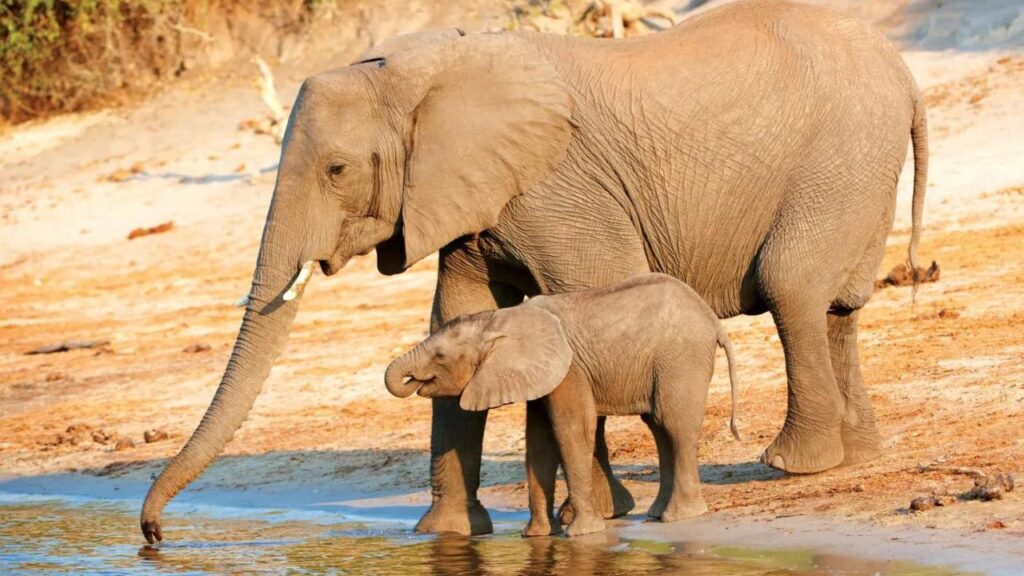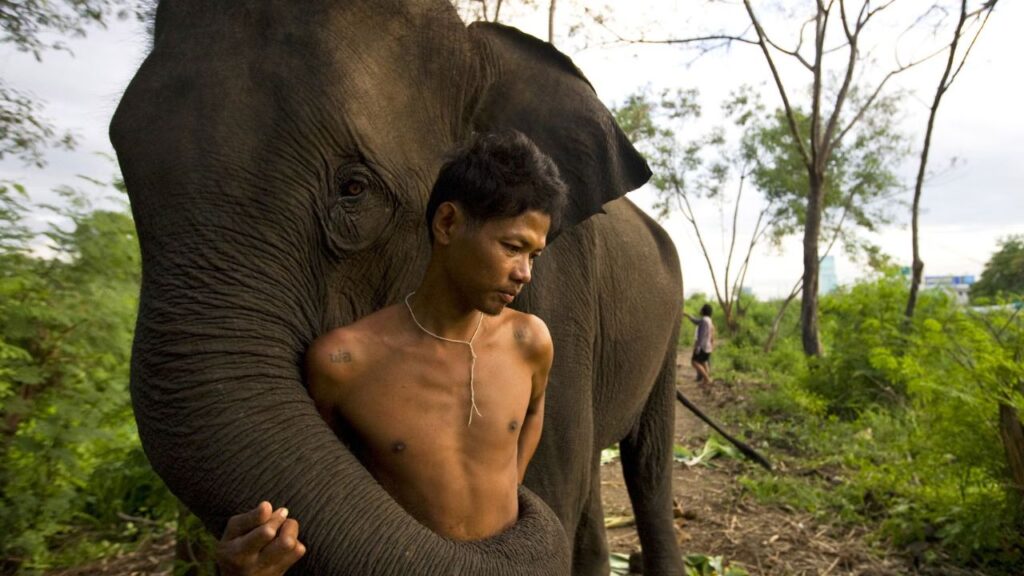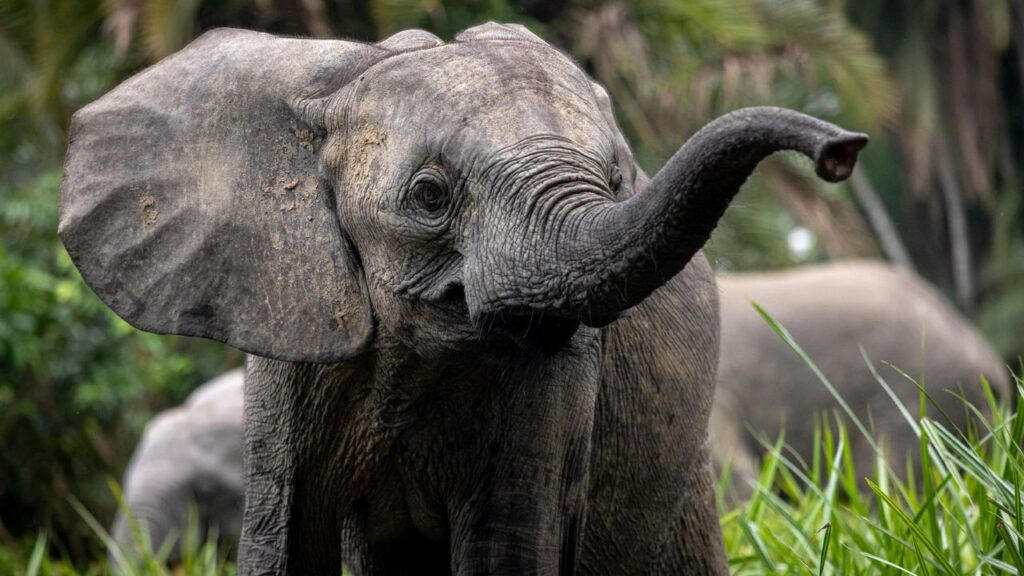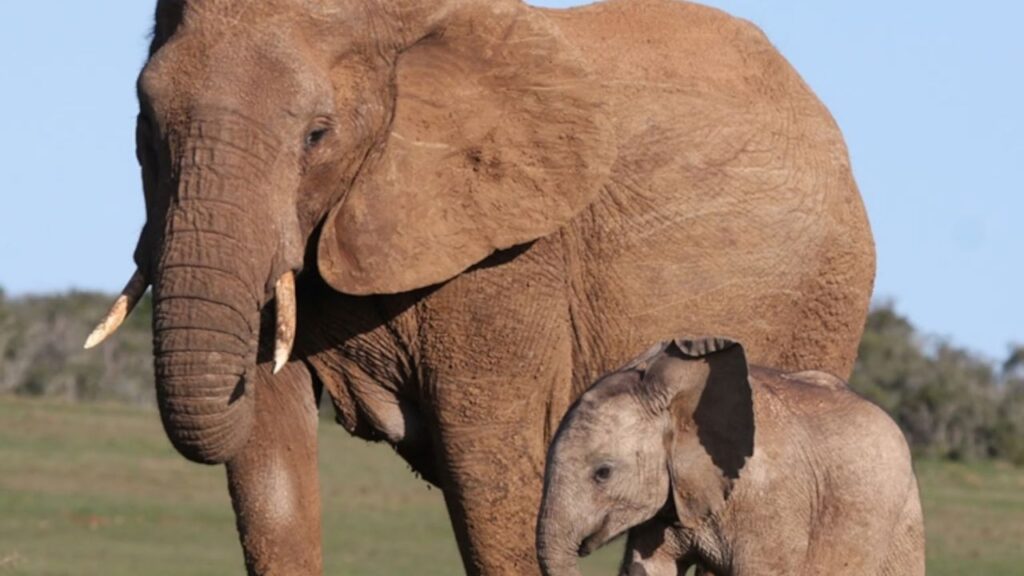Do Elephants Attack Humans? Elephants can attack humans, often due to feeling threatened, provoked, or during periods of heightened aggression.
Elephants, often referred to as the gentle giants of the animal kingdom, are admired for their intelligence, social bonds, and peaceful demeanor.
As the largest land mammals on Earth, these creatures have fascinated humans for centuries, inspiring countless stories, documentaries, and conservation efforts.
However, despite their generally calm nature, elephants are also capable of exhibiting aggression, particularly when they feel threatened or provoked. This can lead to dangerous encounters with humans, sometimes resulting in severe injuries or fatalities.
In this comprehensive article, we will delve into the circumstances under which elephants might attack humans, the frequency of such incidents, the dangers posed by these attacks, and strategies for avoiding conflicts with these majestic animals.
Contents
What Are Elephants?
Overview of Elephants
Elephants belong to the family Elephantidae and are classified into three species: the African bush elephant, the African forest elephant, and the Asian elephant.
The African bush elephant is the largest of the three, with males standing up to 13 feet tall at the shoulder and weighing up to 12,000 pounds.
The African forest elephant is smaller and more elusive, while the Asian elephant is distinguished by its smaller size, rounded ears, and the presence of a single “finger” on its trunk, compared to the two found on the trunks of African elephants.
Elephants are highly adaptable animals, inhabiting a range of environments, from savannas and forests to deserts and swamps. [Do Elephants Attack Humans?]
They are herbivores, with a diet consisting mainly of grasses, leaves, fruits, and bark. Due to their enormous size, elephants require vast amounts of food and water, often consuming up to 300 pounds of vegetation and 50 gallons of water in a single day.
This need for large quantities of resources drives their constant movement across large territories, leading to occasional overlaps with human settlements. [Do Elephants Attack Humans?]
Elephant Behavior
Elephants are renowned for their complex social structure and emotional depth. They live in matriarchal herds, led by the oldest and often the wisest female.
These herds are composed of related females and their young, who rely on the matriarch’s experience to navigate their environment and find food and water.
Male elephants, known as bulls, usually leave the herd upon reaching adolescence and may live solitary lives or form small, loosely connected bachelor groups.
Elephants are highly intelligent animals, capable of using tools, solving problems, and exhibiting behaviors that suggest a deep understanding of death and loss.
They are also known for their impressive memory, which allows them to remember the locations of water sources and recognize other elephants, even after long periods of separation.
Despite their generally peaceful nature, elephants can become aggressive, particularly when they feel threatened, are in pain, or during certain times of the year, such as mating season.

Why Do Elephants Attack Humans?
Threat Perception
Like many animals, elephants are highly protective of their young and their herd. When they perceive a threat, whether real or perceived, they can become aggressive in an effort to protect themselves and their group.
Humans, particularly those unfamiliar with elephant behavior, can inadvertently trigger these defensive responses. [Do Elephants Attack Humans?]
For example, approaching an elephant too closely, making loud noises, or appearing to threaten a calf can all provoke an attack. In such cases, the elephant may charge at the perceived threat, using its massive size and strength to drive it away.
Provocation
Provocation is a significant factor that can lead to elephant attacks. Human activities such as hunting, poaching, or even driving too close to an elephant can provoke an aggressive response.
Elephants have long memories and may associate certain smells, sounds, or even types of vehicles with past negative experiences, leading them to preemptively attack in what they perceive as a defensive move.
Additionally, in areas where elephants have been subjected to frequent harassment or violence, they may develop a heightened sensitivity to human presence, resulting in more frequent and severe encounters.
Mating Season Aggression
Male elephants experience a period known as musth, during which their testosterone levels can increase by as much as 60 times their normal levels.
Musth is characterized by heightened aggression, increased sexual activity, and a greater willingness to challenge other males for dominance.
During this period, bulls are more likely to engage in fights with other males and may even attack humans who venture too close. [Do Elephants Attack Humans?]
Musth can last several weeks, and during this time, male elephants are particularly dangerous, as their behavior becomes more unpredictable and aggressive.
Human-Wildlife Conflict
As human populations expand and encroach on elephant habitats, conflicts between humans and elephants have become increasingly common.
Elephants may enter villages, farms, or other human-occupied areas in search of food, often resulting in clashes with local residents.
In some cases, elephants raid crops, destroy property, or even attack people in response to attempts to drive them away. [Do Elephants Attack Humans?]
These conflicts are exacerbated by habitat loss and fragmentation, which force elephants to venture into human-populated areas more frequently in search of resources.

Are Elephant Attacks Common?
Statistics and Frequency
While elephant attacks on humans are relatively rare compared to other wildlife attacks, they do occur and can have devastating consequences. According to various reports, elephants are responsible for approximately 500 human deaths each year.
These incidents are most common in regions where elephants and humans live in close proximity, such as parts of Africa and South Asia. [Do Elephants Attack Humans?]
However, the frequency of attacks can vary significantly depending on the region, the behavior of the local elephant population, and the nature of human-elephant interactions.
Geographical Hotspots
Elephant attacks are more prevalent in certain geographical regions, particularly where human-elephant conflict is frequent. In countries like India and Sri Lanka, where large human populations overlap with significant elephant habitats, conflicts are common, and so are attacks.
Similarly, in parts of Africa, such as Kenya, Tanzania, and Botswana, where elephant populations are large and expanding human settlements continue to encroach on their territories, the likelihood of attacks increases.
In these regions, factors such as habitat encroachment, poaching, and agricultural expansion contribute to the rising tensions between humans and elephants.
Additionally, areas that have experienced drought or other environmental stressors may see increased elephant attacks as the animals venture closer to human settlements in search of food and water.
Captive vs. Wild Elephants
There is a significant difference in behavior between wild and captive elephants when it comes to aggression. [Do Elephants Attack Humans?]
Wild elephants may attack humans primarily when they feel threatened or provoked, while captive elephants, especially those that have been mistreated or poorly cared for, can also become aggressive.
In captivity, elephants that have been subjected to harsh training methods, confined in small spaces, or deprived of social interaction and adequate care are more likely to exhibit stress-related behaviors, including aggression.
Some incidents of elephant attacks in captivity involve elephants that have been driven to the brink by years of mistreatment. [Do Elephants Attack Humans?]
In such cases, an elephant’s aggression can be sudden and seemingly unprovoked, often resulting in tragic outcomes for handlers, tourists, or others in close proximity.
These attacks highlight the importance of proper care, ethical treatment, and respectful interaction with captive elephants to minimize the risk of dangerous encounters.

How Dangerous Are Elephant Attacks?
Impact of an Attack
The sheer size and power of an elephant make any attack potentially lethal. When an elephant charges, it can reach speeds of up to 25 miles per hour, and with its massive weight behind it, the impact of a collision can be devastating.
Elephants use their trunks, tusks, and feet as weapons, capable of goring, trampling, or throwing a human with tremendous force. The aftermath of an elephant attack can include severe injuries such as broken bones, internal bleeding, and in many cases, death.
The force of an elephant’s attack is amplified by their size. An adult elephant’s foot, for example, can cover a large area and exert significant pressure, making trampling a particularly dangerous outcome.
Additionally, the tusks of male elephants, which can grow up to 10 feet in length, are formidable weapons capable of causing deep puncture wounds or crushing injuries.
The overall impact of an elephant attack is often catastrophic, both for the immediate victims and for the communities that live in fear of further incidents.
Fatalities and Injuries
Fatalities from elephant attacks are not uncommon, particularly in regions where human-elephant conflict is prevalent. In some cases, entire villages may be affected, with multiple people injured or killed in a single incident.
Survivors of elephant attacks often face long-term physical and psychological challenges, including permanent disabilities, post-traumatic stress disorder (PTSD), and a deep-seated fear of elephants.
In many instances, the victims of elephant attacks are those who live on the fringes of elephant habitats, such as farmers, herders, or villagers.
These individuals may encounter elephants while tending to their crops, collecting firewood, or traveling between villages. [Do Elephants Attack Humans?]
The risk of attack is particularly high during certain times of the year, such as the dry season, when elephants may be more likely to enter human settlements in search of food and water.
Case Studies
Several high-profile incidents of elephant attacks have garnered international attention, shedding light on the dangers posed by these powerful animals. In one notable case in 2019, a man in India was trampled to death by an elephant after he attempted to chase the animal away from his village.
The elephant, likely feeling threatened by the man’s actions, charged and killed him almost instantly. [Do Elephants Attack Humans?]
Another tragic incident occurred in 2017, when a British tourist was killed in Zambia after an elephant charged the vehicle he was in.
The elephant overturned the vehicle, resulting in fatal injuries to the tourist. These and other similar incidents underscore the unpredictable nature of elephant behavior, particularly when the animals feel threatened or provoked.

How to Avoid Elephant Attacks
Avoiding Aggression
One of the most effective ways to avoid an elephant attack is to avoid provoking the animal in the first place. Elephants, like many wild animals, have a natural instinct to protect themselves and their young from perceived threats.
To minimize the risk of an attack, it is important to maintain a safe distance from elephants, particularly in the wild. Tourists, wildlife enthusiasts, and local residents should avoid approaching elephants too closely, making loud noises, or engaging in any behavior that could be interpreted as a threat.
When observing elephants in the wild, it is crucial to remain calm, quiet, and respectful of their space. Avoid making sudden movements, and do not attempt to feed or interact with the animals.
If you are on a safari or guided tour, always follow the instructions of your guide, who will be familiar with the behavior of elephants and the best practices for ensuring a safe encounter.
Safe Distances
Maintaining a safe distance from elephants is essential, particularly in areas where human-elephant conflict is common. [Do Elephants Attack Humans?]
Experts recommend staying at least 100 meters (328 feet) away from wild elephants, and even farther if the animal shows signs of aggression, such as flapping its ears, trumpeting, or mock charging. In some cases, it may be necessary to retreat to a safe location, such as a vehicle or building, to avoid a potential attack.
When traveling in areas known for elephant activity, it is important to be vigilant and aware of your surroundings. Elephants are large animals, but they can move surprisingly quietly, especially in dense vegetation.
Always be on the lookout for signs of elephants, such as footprints, dung, or broken branches, and take precautions to avoid unexpected encounters. [Do Elephants Attack Humans?]
Understanding Behavior
Recognizing the signs of aggression in elephants can help prevent attacks and ensure a safe encounter. Elephants that are preparing to charge may display several warning signs, including flapping their ears, raising their trunks, trumpeting loudly, and mock charging (a behavior in which the elephant charges but stops short of making contact).
If you observe any of these behaviors, it is important to back away slowly and avoid making any sudden movements that could provoke the elephant further.
Understanding elephant behavior is also crucial for those who live in close proximity to elephant habitats. Educating local communities about the signs of aggression and the appropriate responses can help reduce the risk of attacks and promote coexistence between humans and elephants.
Additionally, efforts to minimize human-elephant conflict, such as building barriers around crops or developing alternative water sources for elephants, can help reduce the likelihood of dangerous encounters.
Responsible Tourism
Ethical and responsible wildlife tourism practices play a vital role in reducing human-elephant conflicts and ensuring the safety of both animals and visitors.
Tourists should only visit wildlife sanctuaries and reserves that prioritize the well-being of the animals and promote safe, non-invasive viewing practices. [Do Elephants Attack Humans?]
This includes following guidelines for safe distances, avoiding direct interaction with elephants, and supporting conservation efforts that protect elephant habitats.
In recent years, there has been a growing awareness of the importance of ethical elephant tourism, particularly in countries like Thailand, where the use of elephants in the tourism industry has been a controversial issue.
Many organizations now offer responsible elephant experiences, such as observing elephants in their natural habitat or participating in conservation activities. By choosing these options, tourists can help protect elephants and reduce the risk of dangerous encounters.
Final Verdict
Elephants, while generally peaceful creatures, can become dangerous when they feel threatened, provoked, or during periods of heightened aggression like musth.
Understanding the reasons behind elephant attacks and taking steps to avoid provoking these animals can significantly reduce the risk of such incidents. Respecting their space, practicing safe viewing practices, and supporting responsible wildlife tourism are essential in fostering a peaceful coexistence between humans and elephants.
By recognizing the signs of aggression and maintaining a safe distance, we can enjoy the beauty and majesty of these incredible animals while minimizing the risk of conflict.
See Also: Do Kookaburras Attack Humans? Beware the Laugh!
FAQs
Are elephants naturally aggressive?
Elephants are generally not aggressive by nature, but they can become dangerous if they feel threatened, provoked, or during specific periods like musth in males.
What should I do if I encounter an aggressive elephant?
If you encounter an aggressive elephant, it’s important to remain calm, back away slowly, and avoid making any sudden movements. Do not run, as this can provoke a chase.
Can domesticated elephants also attack humans?
Yes, domesticated elephants can also attack humans, especially if they are mistreated, in poor health, or during periods of heightened aggression like musth. [Do Elephants Attack Humans?]
How often do elephant attacks result in fatalities?
Elephant attacks can often result in fatalities, particularly in regions where human-elephant conflicts are common. Fatalities are usually due to the immense size and strength of the animal.
What regions have the highest rates of elephant attacks on humans?
Regions with high rates of elephant attacks include parts of India, Sri Lanka, and certain African countries where human-elephant conflicts are frequent due to habitat encroachment and other factors.
Conclusion: Do Elephants Attack Humans?
Elephants are magnificent creatures that deserve our respect and protection. By understanding the reasons behind elephant attacks and taking proactive steps to avoid conflict, humans can coexist peacefully with these incredible animals.
Whether in the wild or in captivity, it’s essential to approach elephants with caution, giving them the space and respect they need to thrive. [Do Elephants Attack Humans?]
In doing so, we not only protect ourselves but also contribute to the conservation and well-being of one of the planet’s most remarkable species.

Hello, I am Rosa Ellis, a mother of two and a wildlife blogger. I grew up in New York City, but I love exploring forests. I’ve traveled to places like Yellowstone National Park and the Amazon Rainforest to see animals up close. I know a lot about animal behavior and which animals can be dangerous to humans. Thanks for visiting my blog!

